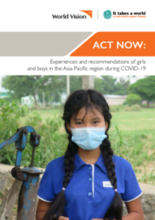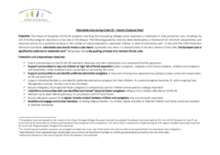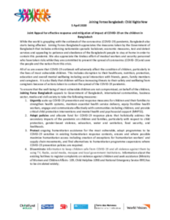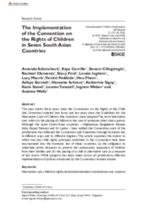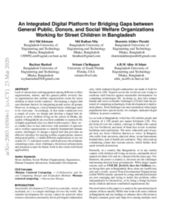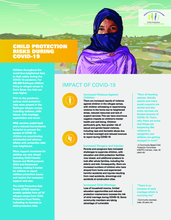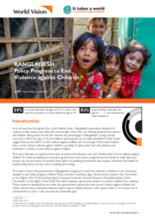Displaying 21 - 30 of 56
The WHO South-East Asia Regional Office in collaboration with UNICEF organized a 3-day virtual meeting from 27 to 29 April, 2021.
This consultation explores children and young people’s views and experiences related to COVID-19 and its secondary impacts.
This video series from UNICEF shares the stories of young girls living through COVID-19 – coping with the fears of child marriage, the struggles of distance learning, and the burden of isolation.
This guidance note has been developed as a framework for minimum preparedness and response actions for a potential increase in the number of unaccompanied or separated children in need of alternative care in Bangladesh.
In this online event, Family for Every Child members FSCE (Ethiopia), The Mulberry Bush (UK), Praajak (India) and CSID (Bangladesh) discussed children's care in the context of COVID-19.
To ensure that the well-being of the most vulnerable children are not compromised, Joining Forces Bangladesh appeals to the Government of Bangladesh, international communities, business sector, and media and civil society to take the measures outlined in this joint appeal.
This article examines the extent to which two key child rights principles enshrined in the Convention have been incorporated into the domestic law of seven South Asian countries: (a) the obligation to undertake active measures to prevent the unnecessary separation of children from their families and (b) the placing of a child in alternative care as a measure of last resort.
In this study conducted over a couple of years, the authors design and develop a digital hub deployed to serve children living on the streets in Dhaka, the capital of Bangladesh.
This factsheet explores the impacts of COVID-19 on children in Rohingya refugee camps in Cox's Bazar, Bangladesh.
This report reviews the government of Bangladesh’s progress to create the minimum conditions in law and policy needed to end violence against children.

